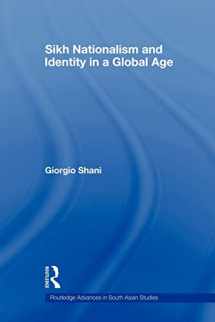
Sikh Nationalism and Identity in a Global Age (Routledge Advances in South Asian Studies)
Book details
Summary
Description
Sikh Nationalism and Identity in a Global Age examines the construction of a Sikh national identity in post-colonial India and the diaspora and explores the reasons for the failure of the movement for an independent Sikh state: Khalistan. Based on a decade of research, it is argued that the failure of the movement to bring about a sovereign, Sikh state should not be interpreted as resulting from the weakness of the ‘communal’ ties which bind members of the Sikh ‘nation’ together, but points to the transformation of national identity under conditions of globalization. Globalization is perceived to have severed the link between nation and state and, through the proliferation and development of Information and Communications Technologies (ICTs), has facilitated the articulation of a transnational ‘diasporic’ Sikh identity. It is argued that this ‘diasporic’ identity potentially challenges the conventional narratives of international relations and makes the imagination of a post-Westphalian community possible. Theoretically innovative and interdisciplinary in approach, it will be primarily of interest to students of South Asian studies, political science and international relations, as well as to many others trying to come to terms with the continued importance of religious and cultural identities in times of rapid political, economic, social and cultural change.


We would LOVE it if you could help us and other readers by reviewing the book
Book review



